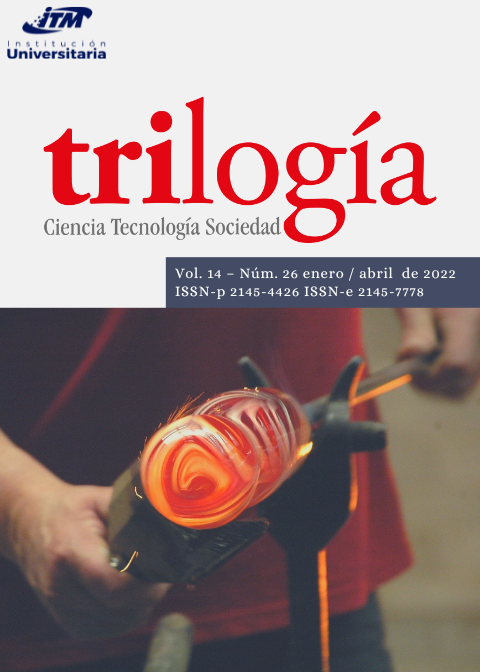Reflections on Technique: The Gorgon Myth as the Modern Medusa
Abstract
The purpose of this article is to show, based on Heidegger’s reflections on technology and the archetypal psychology proposed by Hillman, that the Medusa myth can be interpreted as the phenomenon of modern technique. This modern Medusa is a destiny—in Heidegger’s terms, das Geschick, i.e., the projected, the destined—that takes place when the phenomenon of modern technique imposes itself over nature, petrifying it like Medusa, taking its life away with her stare, and turning what it looks at into an object. Modern technique, as well as Medusa, is destined to petrify the natural and its surroundings. Instrumental reason, due to the development of modern technique, has reflected, until today, the image of that Medusa that petrifies nature. Heidegger conceives the phenomenon of technique in his concept of Gestell (technological framework), which can translate into different stages of technique and new technologies (i.e., impose, dispose, compose, create, and free) that match the phases of the myth of Medusa described by Ovidio Nasón in Metamorphosis. This study presents the correspondence of those stages and concludes that modern technique, following said stages, establishes itself in nature going hand in hand with instrumental reason. Thus, Heidegger and Hillman offer an interpretation of the Greek téchne and the Medusa myth that can represent the technological events we are living nowadays.
References
Agamben, G. (1999). The Man Without Content. Stanford University Press.
Bunge, M. (2019). Promesas y peligros de los avances tecnológicos. Trilogía Ciencia Tecnología Sociedad, v. 11, n. 21, 7-10. https://doi.org/10.22430/21457778.1468
Cortés, A., Crippen, M. (2021). Phenomenology and Ecology: Art, Cities, and Cinema in the Pandemic. The Polish Journal of Aesthetics, n. 61, 27-41. https://doi.org/10.19205/61.21.2
de Moraes, Vinícius. (s.f.). La rosa de Hiroshima. https://ciudadseva.com/texto/la-rosa-de-hiroshima/
Durand, G. (2000). Exploración de lo imaginal. Spring.
Heidegger, M. (2003). Vorträge und Aufsätze. Klett-Cotta.
Hillman, J. (2017). El pensamiento del corazón. Ediciones Atalanta.
Hillman, J. (2016). Pan y la pesadilla (2da ed.). Ediciones Atalanta.
Hillman, J. (2010). Un terrible amor por la guerra. Sexto piso.
Hillman, J. (2002). Politica della Bellezza. Moretti & Vitali.
Horkheimer, M., Adorno, T. W. (1994). Dialéctica de la Ilustración. Editorial Trotta.
Horkheimer, M. (1970). Sobre el concepto del hombre y otros ensayos. Sur.
Le Van, A. (2011). Medusa: la manipulación del mito. Opera Mundi. http://operamundi-magazine.com/?p=1349
Lukács, G. (2009). Historia y conciencia de clase. Estudios de dialéctica marxista. Ediciones ryr.
Lyotard, J. F. (2006). La condición posmoderna. Cátedra.
Marcuse, H. (1983). Eros y Civilización. Editorial Sarpe.
Satrapi, M. (dir.). (2020). Radioactive [película]. Shoebox Films.
Ovidio Nasón, P. (1981). Metamorfosis. Editorial Bruguera.
Rojcewicz, R. (2006). The Gods and Technology: A reading of Heidegger. State University of New York Press.
Weber, M. (2011). La ética protestante y el espíritu del capitalismo (2da ed.). Fondo de Cultura Económica.
Downloads
Copyright (c) 2022 Instituto Tecnológico Metropolitano

This work is licensed under a Creative Commons Attribution-NonCommercial-ShareAlike 4.0 International License.
Altmetric










